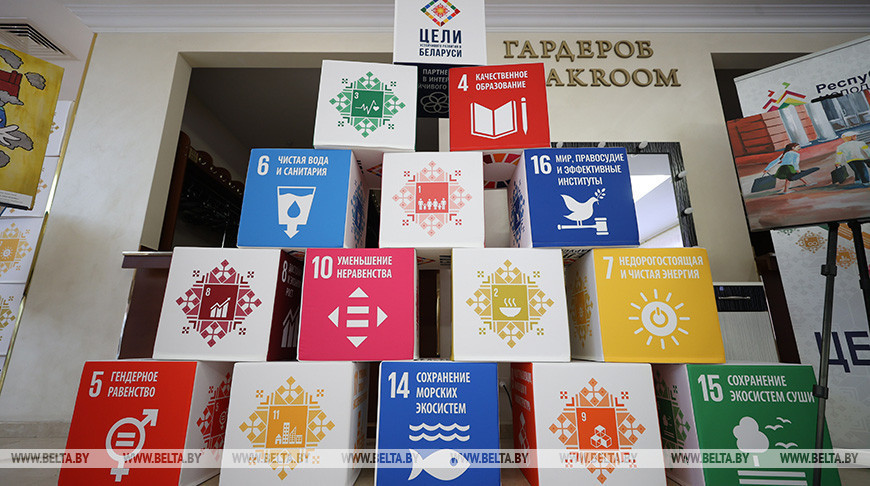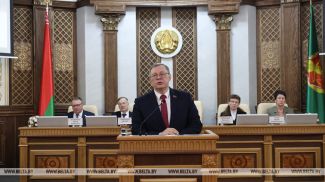
MINSK, 19 June (BelTA) - The experience of Belarus in achieving the Sustainable Development Goals can be useful to many countries in the UNECE region, Dmitry Mariyasin, Deputy Executive Secretary of the United Nations Economic Commission for Europe (UNECE), said as he addressed the second National Forum on Sustainable Development in Minsk, BelTA has learned.
"The UNECE region covers 56 countries in North America, Europe and Central Asia and is one of the leading regions in the field of achieving the SDGs. Unfortunately, even our region are on track to achieve only 21 SDG targets out of 169 by 2030. Progress needs to accelerate for 79 targets and the current trend must be reversed for 15. Given that there are six years left until 2030, progress is insufficient," Dmitry Mariyasin said.
He noted that, taking into account the situation in the world, it is necessary to revise approaches to achieving the SDGs, to promote flexible policies, to adapt the regulatory framework, introduce sustainable development methodology, conceptual approaches in all areas of public policy. "I think the experience of Belarus would be useful for many countries in the region. We need holistic approaches that ensure a comprehensive and balanced account of social, economic and environmental consequences, negative megatrends, climate change dynamics, and the changed demographic situation. For its part, the EEC is making efforts to support states in this direction," Dmitry Mariyasin noted.
"The UNECE region covers 56 countries in North America, Europe and Central Asia and is one of the leading regions in the field of achieving the SDGs. Unfortunately, even our region are on track to achieve only 21 SDG targets out of 169 by 2030. Progress needs to accelerate for 79 targets and the current trend must be reversed for 15. Given that there are six years left until 2030, progress is insufficient," Dmitry Mariyasin said.
He noted that, taking into account the situation in the world, it is necessary to revise approaches to achieving the SDGs, to promote flexible policies, to adapt the regulatory framework, introduce sustainable development methodology, conceptual approaches in all areas of public policy. "I think the experience of Belarus would be useful for many countries in the region. We need holistic approaches that ensure a comprehensive and balanced account of social, economic and environmental consequences, negative megatrends, climate change dynamics, and the changed demographic situation. For its part, the EEC is making efforts to support states in this direction," Dmitry Mariyasin noted.













